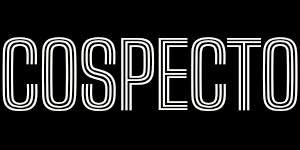Liberty and Limits: The Conservative Vision of Freedom
In today’s political landscape, “liberty” is a term frequently invoked yet rarely deeply understood. Libertarians exalt it as the ultimate value, viewing the state and community as the greatest threats to individual freedom, advocating for absolute personal autonomy and minimal government. Yet, when such liberty is pushed to extremes, the result is not greater emancipation but social atomization, the erosion of public responsibility, and even the emergence of new forms of tyranny. Conservatism holds that liberty, while precious, must have boundaries and support to endure.
As a conservative, I affirm the value of liberty, but this liberty must be guided by morality, law, and tradition. I advocate for individualism, yet believe it must be rooted in family values and local community support to coexist with responsibility and virtue. Conservatism sees society as an organic whole, with government as just one of many powers, working alongside local mutual aid networks and church charities to sustain liberty and order, rather than relying on the handouts of a welfare state. Such handouts, funded at taxpayers’ expense, undermine personal responsibility and community vitality.
The Libertarian Illusion
Libertarianism rests on an unwavering faith in individual rationality and self-sufficiency, deeming all constraints as oppression, and excluding government, church, and even traditional customs from the legitimate framework of liberty. This view overlooks humanity’s inherently social nature, detaching liberty from morality and community, resulting in an empty freedom. When liberty bears no responsibility and is uprooted from ethics and order, it becomes a tool for abuse of power rather than a safeguard of human dignity.
This unchecked liberty, ironically, fosters monopolistic capitalism and ideological hegemony. As evidenced today, Big Tech manipulates speech platforms, amplifying misinformation and division; Big Pharma, during the COVID pandemic, pushed vaccines through policy and market pressures, restricting individual choice; and conglomerates sway public policy, crushing small businesses and individuals. These abuses of power thrive in the soil of “deregulation” and “boundless liberty,” leaving individuals seemingly free but increasingly vulnerable.
Locke’s True Legacy
The true guardian of liberty is not an anarchic utopia but an ordered, virtuous society. John Locke is often mistaken as the founder of liberalism, but he was, in truth, a thinker who articulated conservative principles in the progressive language of his time. His vision of liberty, bounded by natural law and reason, stands in stark contrast to libertarianism’s unrestrained excess. Locke employed the progressive rhetoric of rationality and individual rights, yet insisted that liberty be constrained by morality and order, protecting life, property, and free speech against government and media manipulation—a view wholly aligned with conservative principles of order.
Libertarians misread Locke, claiming he endorsed a “minimal state,” but Locke’s thought aligns more closely with small government conservatism. He saw government as one part of a pluralistic power structure, collaborating with local self-governing bodies to maintain organic order, not ceding control to unchecked markets. Like Edmund Burke, Locke understood the limits of human nature and the fragility of society, emphasizing the foundational role of institutions, traditions, and virtue in safeguarding liberty. By reaffirming Locke’s conservative essence, we dismantle the theoretical foundation of libertarianism, exposing its distortion of freedom.
Small Government and Collaborative Networks
The conservative vision of liberty goes beyond setting boundaries; it is about building support. Small government conservatism does not reject the state’s role but insists it serve as a facilitator, encouraging local self-governance, religious charity, family responsibility, and community mutual aid to collectively uphold social order. This organic view of society holds that society is not a mere collection of atomized individuals but a network of mutual responsibilities, within which liberty finds its strength.
From this perspective, individualism is not an isolated rejection of relationships but a virtuous self rooted in family, faith, and traditional obligations. This stands in sharp contrast to libertarianism’s “self-as-sovereign” ethos. True individual autonomy arises from internal moral restraint and external communal support, not from capricious evasion or rootless wandering.
Conclusion: The Foundation and Fate of Liberty
Liberty without limits ultimately undermines itself. When individuals are absolved of responsibility, public virtue is supplanted by welfare funded at taxpayers’ expense, and society loses its ethical consensus, liberty loses its foundation, becoming a tool for chaos and manipulation.
Libertarianism’s ideal leads to a world where individuals are isolated by power and alienated by markets, enabling abuses by Big Tech, Big Pharma, and conglomerates. For instance, in 2021, former U.S. President Donald Trump’s social media accounts were banned by major platforms, purportedly to combat “hate speech,” but in reality revealing the monopolistic power of private tech oligarchs over public discourse. Similarly, during the COVID pandemic, governments and major pharmaceutical companies imposed vaccine mandates. American citizens faced job losses or travel restrictions, redefining liberty as an obligation to comply rather than a right to moral choice.
Only by returning to morality, order, and community, and steadfastly upholding the conservative vision of liberty, can we preserve individual dignity while avoiding the abyss of anarchy or the trap of despotism. In this turbulent era, true liberty is not the license to do as one pleases, but the capacity to do what is right.
